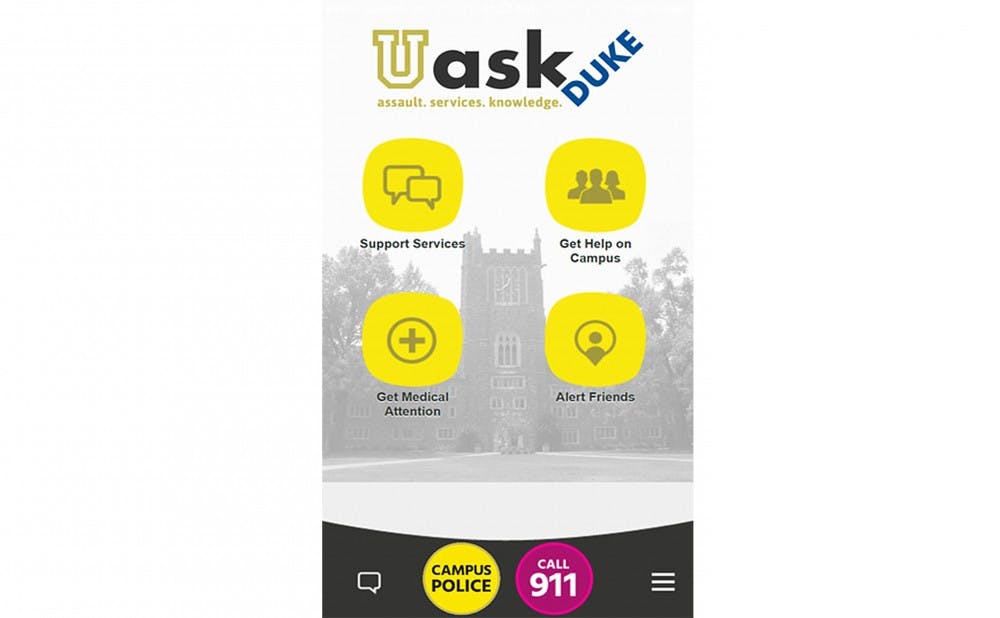A personal security app new to Duke aims to help students combat sexual assault on campus.
The UASK Duke app—which stands for University Assault Services Knowledge—and a corresponding website were launched April 5 to provide information about reporting sexual assault and receiving treatment. Brought to Duke by the Women’s Center and the Office for Institutional Equity, the app started on college campuses in Washington.
“We believe that students are probably most likely to use a free and private app to find information on counseling, healthcare and reporting options,” said Amy Cleckler, gender violence prevention and services coordinator at the Women’s Center.
The original app began as a result of a partnership with Men Can Stop Rape—an organization that works to stop sexual assault—and the Washington Mayor’s Office of Victim Services. The app is currently being used in five locations across the country by more than 50,000 people.
Howard Kallem, director of Title IX compliance, noted that the app features a panic button, which can be used to call Duke University Police Department and Durham police. It also allows users to send preprogramed emergency messages to friends—including, “Help, please come and get me!” and “I’m in an uncomfortable situation. Please call or text me.” Users can also create customized messages to alert friends if they have a problem.
Kallem explained that the app also provides directions to nearby counseling centers, hospitals and the Women’s Center. Other sections instruct users about bystander intervention techniques and reporting assaults to the police and Office of Student Conduct.
“The emphasis is on resources and support services,” Kallem said. “It gives you information on how to get support and counseling.”
Cleckler noted that she had the idea to bring the app to Duke after hearing a story on National Public Radio about the app’s creation by Men Can Stop Rape. She contacted the organization to make a Duke-specific version of the app with relevant campus information. Staff members at Men Can Stop Rape are responsible for the design and maintenance of the app and website.
“We liked the app’s focus on confidential counseling and access to resources, as that is how most students initially seek help following an assault,” Cleckler said.
Kallem said that he believes the app is useful because it is easily accessible on students’ phones at all times.
Students are more likely to use a free and private app to find information on counseling, healthcare and reporting options, Cleckler added.
“Some people might initially be hesitant to walk into an office and see someone face-to-face to ask personal questions, so UASK Duke provides some basic help with getting familiar with what options and resources students can access for themselves or a friend,” she said.
Although similar apps exist on other college campuses, Kallem explained that UASK places more emphasis on resources instead of reporting, which he felt was important to meet the safety needs of Duke students.
Kallem said that the app has received positive feedback so far, along with suggestions on how to improve its usability. The app will eventually link to a Title IX website, which is currently being developed, Kallem said.
A campaign during late summer will work to promote the app and encourage incoming and returning students to download it, Cleckler noted.
“It’s all part of the broader efforts to bring attention to this very important issue [of sexual assault],” Kallem said.
Get The Chronicle straight to your inbox
Signup for our weekly newsletter. Cancel at any time.

